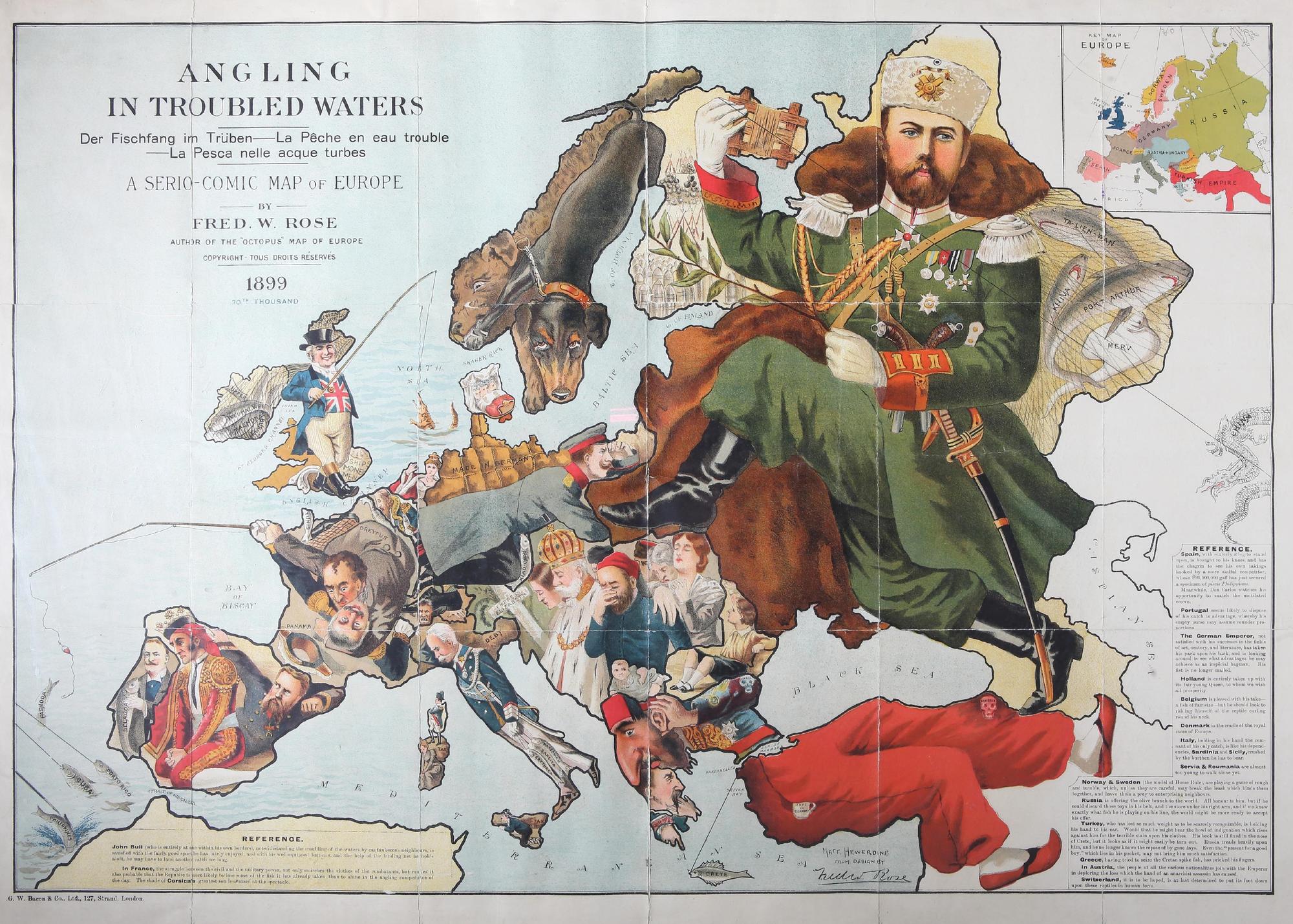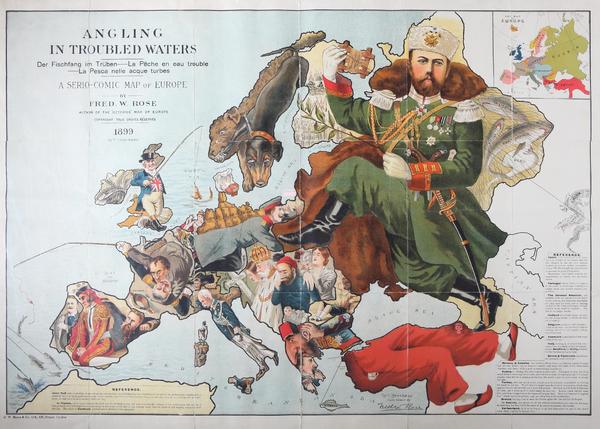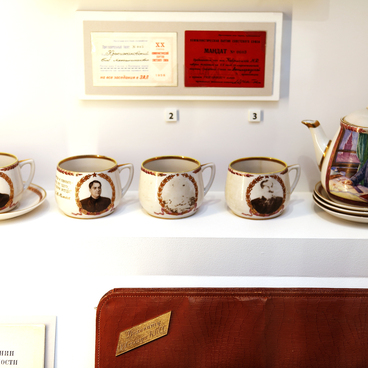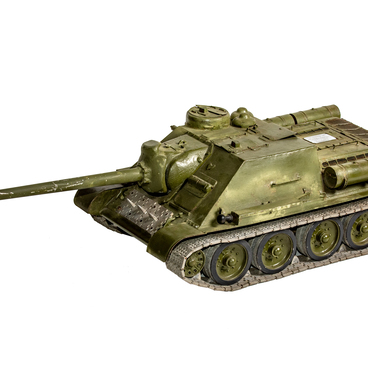The turn of the 20th century was a crucial time in the history of Europe. Fighting for world domination, European powers sought to divide the spheres of influence, built up their industrial and military potential. The region permanently saw alliances being forged and broken. With the growing number of conflicts, Europe found itself on the brink of war.
Ordinary Europeans learnt about European politics mostly from newspaper articles, which were long, often boring and vague. Such articles did not in any way help to get a clearer picture of all diplomatic, political and military twists and turns. Therefore, the unusual genre of political cartoon maps was getting increasingly popular in Europe of that period.
Those maps depicted countries as deliberately grotesque characters, who showed not only funny or, by contrast, annoying stereotypes of various states, but their goals and objectives on the political stage, their strengths and weaknesses.
The postures of such character-countries on the maps were clumsy and bizarre. By so doing the authors ironically depicted relationships among allied countries and their adversaries.
The Museum of Contemporary History of Russia shows in the exhibition a map created by British satirist and caricaturist Frederick William Rose. He became famous for his satirical map ‘The Octopus’ he made in 1877, where he portrayed Russia as a gigantic octopus whose tentacles try to seize the Ottoman Empire.
One of his most famous satirical maps was ‘Fishing in Troubled Waters’ made in 1899. It shows the British view on the political situation in Europe. There Rose depicted various countries with fishing rods: he ironically compared the occupation of new lands by the states with fishing ‘against time’, with each member trying to get the biggest catch and resorting to various – at times rather dishonest techniques.
The map also contains short explanations, which clarify the plot of caricatures. Thus, Russia on the world stage in ‘Fishing in Troubles Waters’ is depicted as follows: ‘Russia offers the world an olive branch. It does Russia credit. But the world might accept its offer if Russia abandoned its “toys” kept behind its belt, the weapon under the right hand and if we knew for sure what game Russia was playing’.
In this text Rose hints at the First Hague Conference held upon the initiative of Nicholas II on 29 August 1899. Then the delegates from 26 nations approved 3 conventions: on a peaceful solution to international conflicts; on laws and customs of a war on the ground; on utilizing the basics of the Geneva Conventions of 10 August 1864 in a naval war.
Ordinary Europeans learnt about European politics mostly from newspaper articles, which were long, often boring and vague. Such articles did not in any way help to get a clearer picture of all diplomatic, political and military twists and turns. Therefore, the unusual genre of political cartoon maps was getting increasingly popular in Europe of that period.
Those maps depicted countries as deliberately grotesque characters, who showed not only funny or, by contrast, annoying stereotypes of various states, but their goals and objectives on the political stage, their strengths and weaknesses.
The postures of such character-countries on the maps were clumsy and bizarre. By so doing the authors ironically depicted relationships among allied countries and their adversaries.
The Museum of Contemporary History of Russia shows in the exhibition a map created by British satirist and caricaturist Frederick William Rose. He became famous for his satirical map ‘The Octopus’ he made in 1877, where he portrayed Russia as a gigantic octopus whose tentacles try to seize the Ottoman Empire.
One of his most famous satirical maps was ‘Fishing in Troubled Waters’ made in 1899. It shows the British view on the political situation in Europe. There Rose depicted various countries with fishing rods: he ironically compared the occupation of new lands by the states with fishing ‘against time’, with each member trying to get the biggest catch and resorting to various – at times rather dishonest techniques.
The map also contains short explanations, which clarify the plot of caricatures. Thus, Russia on the world stage in ‘Fishing in Troubles Waters’ is depicted as follows: ‘Russia offers the world an olive branch. It does Russia credit. But the world might accept its offer if Russia abandoned its “toys” kept behind its belt, the weapon under the right hand and if we knew for sure what game Russia was playing’.
In this text Rose hints at the First Hague Conference held upon the initiative of Nicholas II on 29 August 1899. Then the delegates from 26 nations approved 3 conventions: on a peaceful solution to international conflicts; on laws and customs of a war on the ground; on utilizing the basics of the Geneva Conventions of 10 August 1864 in a naval war.



